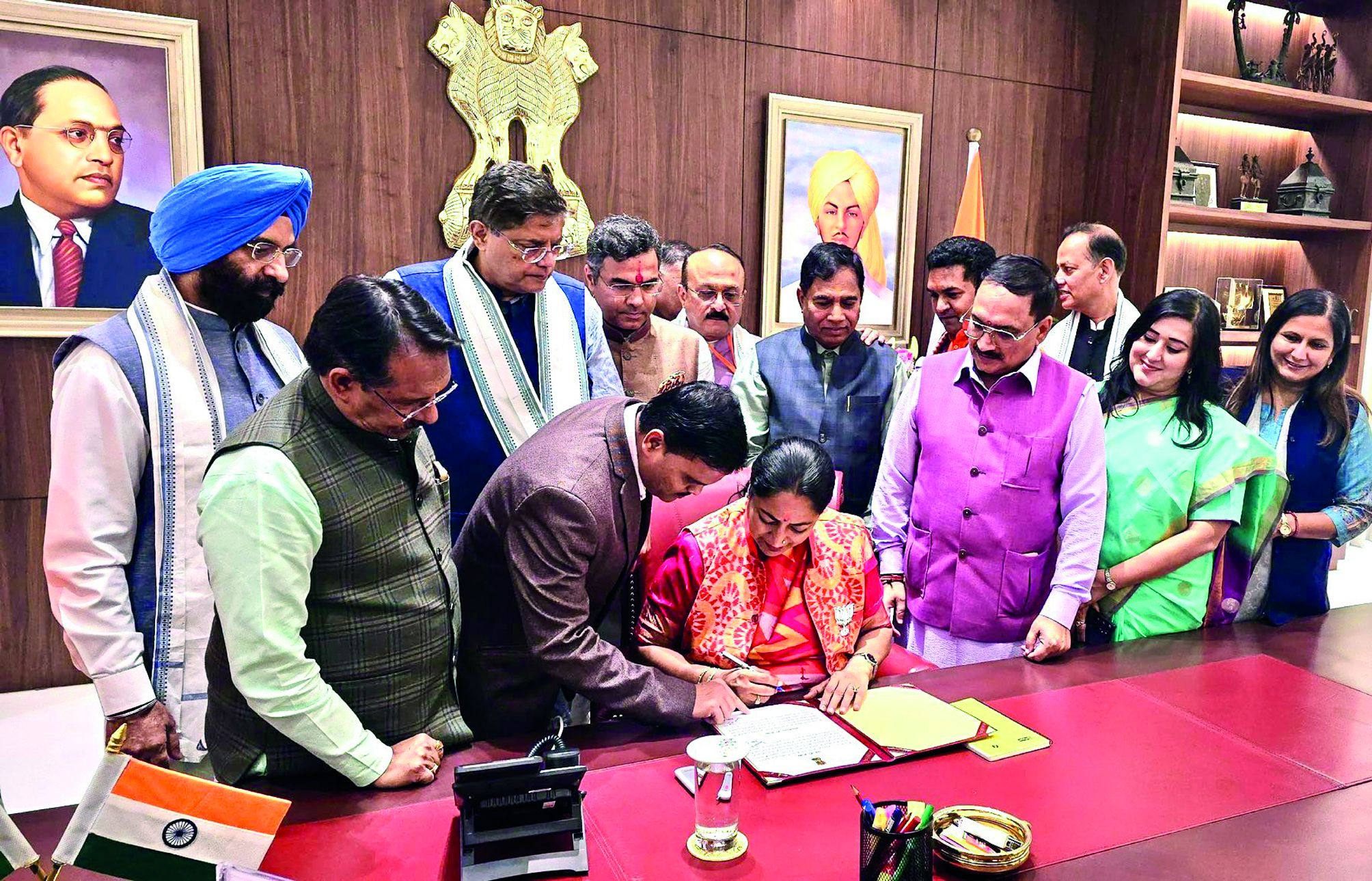Surprise or strategy? Unpacking BJP’s pick of Rekha Gupta as CM

NEW DELHI: The selection of Rekha Gupta as the Chief Minister of Delhi has sparked varied reactions, with some labeling it a “surprise pick” and others viewing it as a strategic political move. The choice is being seen as a calculated effort by the Bharatiya Janata Party (BJP) to appeal to women voters, balance caste equations, and strengthen its relationship with the Rashtriya Swayamsevak Sangh (RSS).
Gupta, who was sworn in alongside ministers Parvesh Verma, Kapil Mishra, Manjinder Singh Sirsa, Ravinder Indraj Raj, Ashish Sood, and Pankaj Singh, became Delhi’s fourth woman Chief Minister, following in the footsteps of Sushma Swaraj (BJP), Sheila Dikshit (Congress), and Atishi (AAP).
Her appointment, however, came after 11 days of suspense during which the BJP leadership engaged in extensive strategising, awaiting Prime Minister Narendra Modi’s return from the United States. The decision required the green light from the RSS, reflecting the continued influence of the Sangh in government formation.
A political researcher and expert, Vasudha, explained the broader significance of Gupta’s appointment, stating, “A woman leading Delhi as Chief Minister holds a unique significance compared to other states. If she completes her term with influence and impact, it challenges the stereotype of women leaders being mere puppets. It proves that they are independent thinkers with their own vision and approach to governance.”
She is a three-time Municipal Councillor and a staunch RSS loyalist, known for her disciplined organisational skills.
Her political career began in student politics with the student wing of RSS, where she served as the President of Delhi University Students’ Union in 1996. Later, she led the Women’s Welfare and Child Development Committee in the Municipal Corporation of Delhi from 2007 to 2009. Despite her low profile, Gupta’s strategic rise continued when she won the Shalimar Bagh assembly seat, defeating AAP’s Bandana Kumari, who had bested her in 2015 and 2020.
Political analysts believe Gupta’s appointment is not just about Delhi but carries significant national messaging. By choosing Gupta—a dedicated RSS worker and loyalist of Sarkaryavah (General Secretary) Dattatreya Hosabale—the BJP acknowledges the RSS’s continued dominance in political decision-making. The decision was reportedly between Gupta and Parvesh Verma, a prominent Jat face in Delhi’s BJP landscape and Kejriwal’s formidable opponent in the New Delhi assembly seat. “Gupta was seen as the ideal choice. The RSS backed Gupta’s candidacy... Senior Sangh leaders preferred a woman for the Delhi Chief Minister role—someone who would prioritize governance over controversies,” she explained.
Gupta’s Punjabi-speaking baniya background is also seen as a strategic advantage. The BJP aims to consolidate its core saffron voter base and regain momentum after ousting AAP, which maintained significant support among women, baniyas, and Punjabis.
In keeping with this approach, Gupta’s cabinet includes two other Punjabi-speaking leaders, Ashish Sood and Manjinder Singh Sirsa, further signaling the BJP’s intent to strengthen its hold on these key voter constituencies.
Gupta’s meticulous approach and controversy-free record set her apart in Delhi BJP, making it harder for AAP to target her. As she takes office, observers await whether this “surprise pick” proves a political masterstroke.



